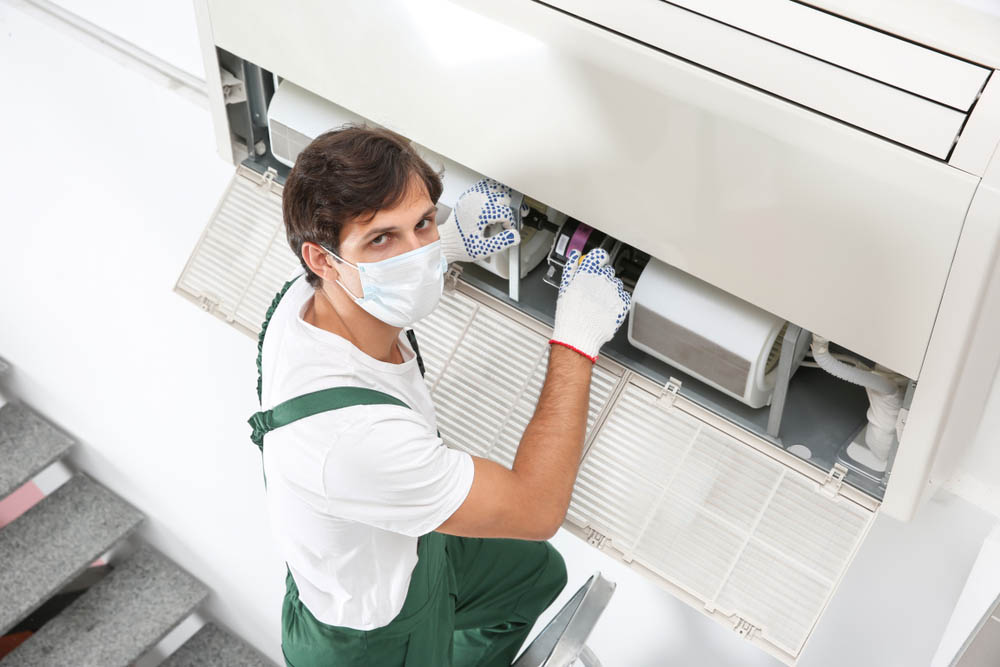Send us an email
Please enter your name and contact info.
Please enter your name and contact info.
Call Us Today! (850) 748-1066

Serving Families Throughout Pensacola
Are you looking to excel in the HVAC industry? Look no further than Diamond Air Design. With their commitment to excellence in HVAC repair and service, Diamond Air Design is a leader in Pensacola FL and the surrounding area. Whether you’re just starting your career or looking to advance, their HVAC industry certifications and training programs will equip you with the knowledge and skills needed to succeed. Don’t miss out on this opportunity to take your career to new heights. Contact Diamond Air Design at (850) 748-1066 or visit their website https://diamondairdesign.com/ for more information.

This image is property of diamondairdesign.com.
In the HVAC industry, there are several certifications that professionals can obtain to demonstrate their expertise and competence in the field. These certifications are offered by various organizations and serve as a way to validate the skills and knowledge of HVAC technicians, contractors, and other professionals. Here are some of the most recognized and reputable HVAC industry certifications:
NATE is one of the leading certification programs in the HVAC industry. It is an independent, non-profit organization that provides certification for HVAC technicians. NATE Certifications are highly regarded and recognized by employers and customers alike. NATE offers certifications in various areas such as air conditioning, heating, ventilation, and refrigeration.
ACCA is an organization that represents the interests of HVAC contractors and professionals. They offer a range of certifications and training programs to help HVAC professionals enhance their skills and stay updated with the latest industry standards. ACCA certifications cover areas such as residential and commercial heating and cooling, system design, and energy efficiency.
BPI is an organization that focuses on improving the energy efficiency of buildings. They offer certifications for professionals who specialize in conducting energy audits and implementing energy-saving measures. BPI certifications are valuable for HVAC professionals who want to specialize in energy efficiency and green building practices.
RSES is a professional organization that provides training and certification for HVAC and refrigeration technicians. Their certifications cover various aspects of HVAC and refrigeration systems, including installation, maintenance, and troubleshooting. RSES certifications are highly regarded in the industry and demonstrate a technician’s competence in the field.
NCI is a training and certification organization that focuses on improving the performance and efficiency of HVAC systems. They offer certifications in areas such as air balancing, combustion analysis, and carbon monoxide safety. NCI certifications are valuable for HVAC professionals who want to specialize in diagnosing and improving the performance of HVAC systems.
ASHRAE is a professional organization that sets the industry standards for HVAC systems and technology. They offer certifications that demonstrate a professional’s understanding and knowledge of ASHRAE standards and practices. ASHRAE certifications are highly respected and are often required for HVAC professionals working on large commercial and industrial projects.
MCAA is an organization that represents mechanical contractors in the construction industry. They offer certifications for HVAC professionals who specialize in mechanical systems installation, maintenance, and service. MCAA certifications are recognized as a mark of excellence and professionalism in the HVAC industry.
SMACNA is an association that represents sheet metal and air conditioning contractors. They offer certifications that demonstrate a professional’s competence in sheet metal work and HVAC duct fabrication. SMACNA certifications are valuable for HVAC professionals who work with sheet metal and ductwork installation.
PHCCA is an association that represents plumbing, heating, and cooling contractors. They offer certifications for professionals in the HVAC industry, focusing on plumbing and HVAC system installation, maintenance, and service. PHCCA certifications are recognized by employers and customers as a proof of a technician’s skills and knowledge.
IAPMO is an organization that develops and maintains plumbing and mechanical codes and standards. They offer certifications for professionals in the plumbing and mechanical industries, including HVAC technicians. IAPMO certifications demonstrate a professional’s understanding of the industry codes and regulations.
HVAC industry certifications hold significant importance for professionals in the field. Here are some key reasons why obtaining these certifications is crucial for HVAC technicians, contractors, and other professionals:
HVAC industry certifications provide assurance to employers and customers that a professional has the necessary technical competence to perform their job effectively. These certifications typically require individuals to demonstrate their knowledge and skills through examinations and practical assessments. By obtaining a certification, HVAC professionals can prove their competence and expertise in the industry.
Certifications serve as a way to verify a professional’s knowledge of the HVAC industry. The process of obtaining a certification often involves studying industry-specific topics, codes, and standards. This ensures that certified professionals have a comprehensive understanding of the field and are up-to-date with the latest industry practices. Customers can trust Certified HVAC Professionals to possess the necessary knowledge to address their specific needs.
HVAC industry certifications are widely recognized and respected in the industry. Employers often prefer to hire certified professionals as they provide a level of assurance regarding their skills and knowledge. Additionally, certified professionals may receive recognition and opportunities for career advancement in their organizations or within the industry as a whole.
Having HVAC industry certifications can significantly improve job prospects for professionals in the field. Many employers prioritize hiring individuals who hold certifications as it demonstrates their commitment to professional growth and development. Additionally, some certifications may be required for specific positions or projects, giving certified professionals a competitive edge in the job market.
Certified HVAC professionals often have higher earning potential compared to their non-certified counterparts. With the industry recognizing the value of certifications, employers are willing to pay higher salaries to professionals who have obtained certifications. Additionally, certifications can open up opportunities for HVAC professionals to take on higher-level roles, which often come with increased compensation.
For customers seeking HVAC services, hiring a certified professional offers peace of mind and confidence in the quality of work. Certifications validate a professional’s skills and knowledge, assuring customers that their HVAC systems will be serviced or installed correctly. Certified professionals are perceived as more trustworthy and reliable, enhancing their credibility with customers.
The HVAC industry is regulated by various codes, standards, and regulations to ensure safety and efficiency. HVAC industry certifications often include training on these standards and require professionals to stay updated with any changes. By holding certifications, HVAC professionals demonstrate their commitment to complying with industry standards and providing quality services that meet or exceed regulatory requirements.
NATE certification is one of the most respected certifications in the HVAC industry. It is designed to validate a technician’s knowledge and skills in the installation, maintenance, and service of HVAC systems. NATE certifications are nationally recognized and widely accepted by employers and customers.
NATE offers certifications at different levels, allowing technicians to specialize in specific areas of HVAC. The core certifications include:
NATE certification offers several benefits to HVAC technicians, including:
NATE certifications are valid for five years. To maintain certification, technicians must participate in ongoing professional development and recertification activities. This can include attending seminars, workshops, or completing manufacturer-specific training programs. By staying updated with industry advancements, NATE-certified technicians ensure their knowledge and skills remain current.
ACCA certification is offered by the Air Conditioning Contractors of America, a leading organization in the HVAC industry. ACCA certifications are designed to enhance a professional’s skills and knowledge in HVAC system design, installation, and service. ACCA certifications are highly regarded and serve as a mark of excellence in the industry.
ACCA offers several certifications, including:
ACCA certifications allow professionals to specialize in specific areas of HVAC and demonstrate their expertise in those domains.
ACCA certification offers numerous advantages for HVAC professionals, such as:
To maintain ACCA certifications, professionals must actively engage in continuing education and professional development activities. ACCA offers various resources, including webinars, conferences, and online courses, to help certified professionals stay updated with the latest industry trends, codes, and regulations. By participating in ongoing learning, ACCA-certified professionals ensure their knowledge and skills remain current, keeping them at the forefront of the HVAC industry.

This image is property of s3-media0.fl.yelpcdn.com.
BPI certification is offered by the Building Performance Institute, an organization focused on energy efficiency in buildings. BPI certifications are designed for professionals involved in conducting energy audits and implementing energy-saving measures. BPI-certified professionals have the knowledge and expertise to identify energy efficiency improvements in buildings and help homeowners and businesses save energy and reduce costs.
BPI offers various certifications, including:
BPI certifications allow professionals to specialize in energy efficiency and gain the skills needed to address the growing demand for green and sustainable building practices.
BPI certification provides several benefits for HVAC professionals, including:
BPI certifications are valid for three years. To renew their certifications, professionals must accumulate continuing education units (CEUs) by participating in approved training programs, workshops, conferences, or other industry-related activities. By staying current with industry advancements and regulations, BPI-certified professionals ensure their knowledge and skills remain relevant and up-to-date.
RSES certification is offered by the Refrigeration Service Engineers Society, an organization focused on advancing the HVAC and refrigeration industry through education and training. RSES certifications validate a professional’s knowledge and proficiency in various aspects of HVAC and refrigeration systems.
RSES offers a range of certifications, including:
RSES certifications cover topics such as electrical systems, refrigeration systems, heating systems, and safety procedures.
RSES certification offers several advantages for HVAC professionals, including:
To maintain RSES certifications, professionals must earn continuing education credits every three years. This can be done by participating in approved training programs, attending RSES conferences or seminars, or completing other industry-related activities. By engaging in ongoing learning, RSES-certified professionals ensure their knowledge and skills are up-to-date, allowing them to provide the highest level of service to their customers.

This image is property of s3-media0.fl.yelpcdn.com.
NCI certification is offered by the National Comfort Institute, an organization dedicated to improving the performance and efficiency of HVAC systems. NCI certifications validate a professional’s knowledge and skills in various areas related to HVAC system performance, including air balancing, combustion analysis, and carbon monoxide safety.
NCI offers several certification programs, including:
NCI certifications provide HVAC professionals with the skills and knowledge to diagnose and address performance issues in HVAC systems accurately.
NCI certification offers several benefits for HVAC professionals, such as:
To maintain NCI certifications, professionals must participate in ongoing learning and professional development activities. NCI offers various training programs, webinars, and seminars to ensure certified professionals stay updated with the latest industry trends and best practices. By staying current with advancements in HVAC system performance, NCI-certified professionals can continue delivering superior services to their customers.
ASHRAE certification is offered by the American Society of Heating, Refrigerating and Air-Conditioning Engineers, a professional association focused on advancing the HVAC industry. ASHRAE certifications validate a professional’s knowledge and understanding of ASHRAE standards and practices, which are widely recognized and followed in the HVAC industry.
ASHRAE offers several certification levels, including:
ASHRAE certifications allow professionals to demonstrate their expertise in specific areas related to HVAC system design, energy efficiency, and building operation.
ASHRAE certification offers several advantages for HVAC professionals, including:
ASHRAE certifications are valid for five years. To renew their certifications, professionals must accumulate continuing education credits by attending ASHRAE training programs, conferences, seminars, or other industry-related activities. By actively engaging in ongoing professional development, ASHRAE-certified professionals ensure their knowledge and skills stay current with the rapidly evolving HVAC industry.

This image is property of diamondairdesign.com.
MCAA certification is offered by the Mechanical Contractors Association of America, an organization representing mechanical contractors in the construction industry. MCAA certifications validate a professional’s knowledge and skills in mechanical systems installation, maintenance, and service.
MCAA offers several certifications, including:
MCAA certifications provide professionals with the recognition and validation of their skills in mechanical system installation and service.
MCAA certification offers several advantages for HVAC professionals, including:
To maintain MCAA certifications, professionals must stay updated with industry advancements and maintain a high level of competence in their respective areas. MCAA offers various resources, including training programs, conferences, and webinars, to help certified professionals stay informed and develop their skills further. By actively participating in ongoing learning, MCAA-certified professionals ensure their knowledge and skills remain relevant and valuable.
IAPMO certification is offered by the International Association of Plumbing and Mechanical Officials, an organization that develops and maintains plumbing and mechanical codes and standards. IAPMO certifications validate a professional’s knowledge of the industry codes and regulations and their ability to adhere to them in practical applications.
IAPMO offers various certifications, including:
IAPMO certifications provide professionals with the credibility and expertise to ensure safe and compliant plumbing and mechanical systems.
IAPMO certification offers several advantages for HVAC professionals, including:
To maintain IAPMO certifications, professionals must stay informed about code updates and participate in continuing education and professional development activities. IAPMO offers various resources, including code update courses, publications, and conferences, to help certified professionals remain current with industry codes and standards. By actively engaging in ongoing learning, IAPMO-certified professionals ensure their knowledge and skills align with the latest regulations and best practices.
In conclusion, HVAC industry certifications play a crucial role in validating the skills and knowledge of professionals in the field. From NATE and ACCA to BPI and ASHRAE, these certifications provide numerous benefits, such as enhanced job prospects, higher earning potential, and improved industry recognition. By obtaining and maintaining these certifications, HVAC professionals can stay at the forefront of the industry, offering high-quality services and ensuring customer satisfaction. Whether specializing in installation, service, design, or energy efficiency, HVAC industry certifications are essential for professional growth and success.

This image is property of diamondairdesign.com.